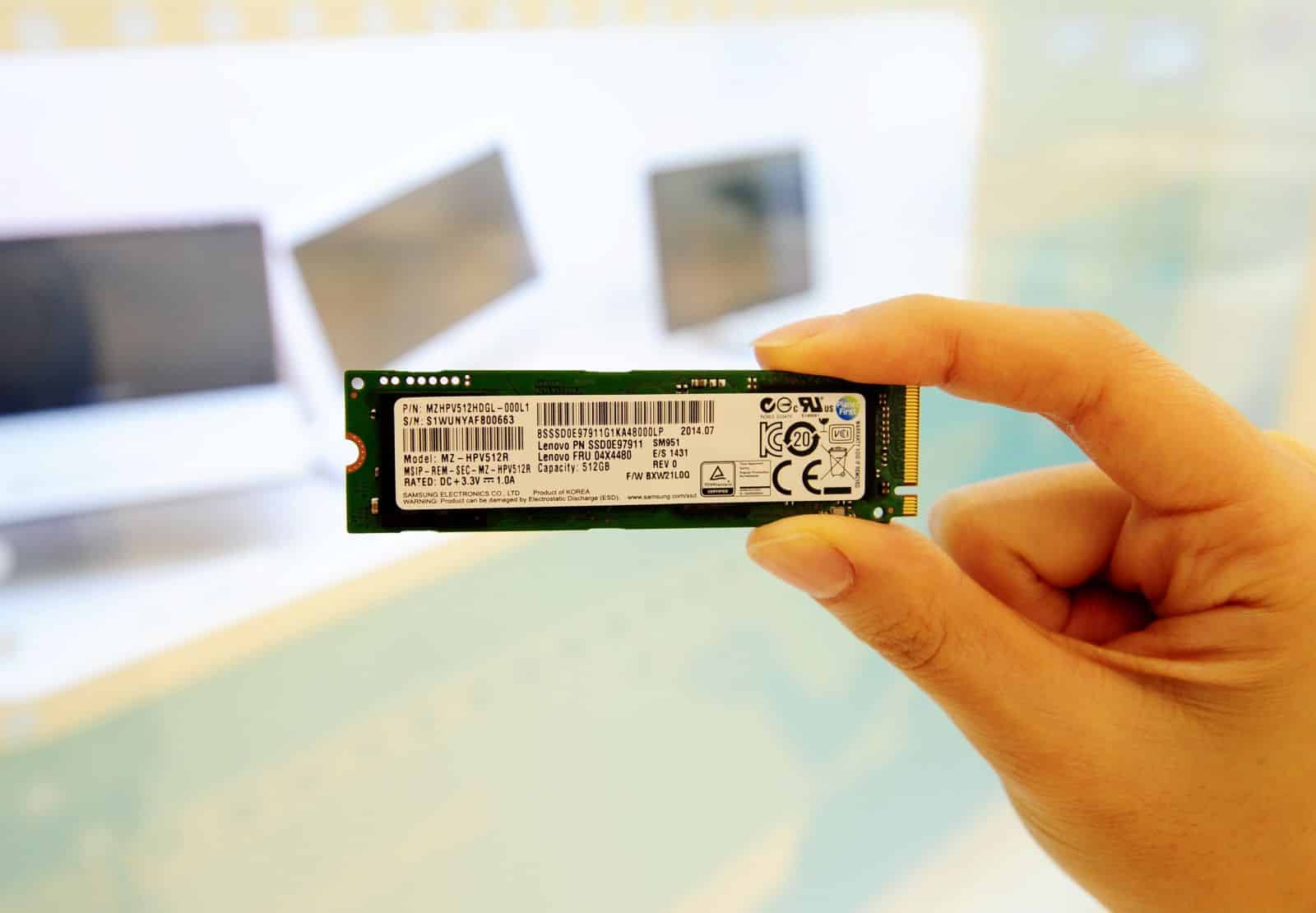 Samsung Electronics has announced that it is mass producing a high-performance, low-powered PCIe SSD, the SM951. The SM951 is designed for use in both ultra-slim notebook PCs and workstations.
Samsung Electronics has announced that it is mass producing a high-performance, low-powered PCIe SSD, the SM951. The SM951 is designed for use in both ultra-slim notebook PCs and workstations.
Samsung Electronics has announced that it is mass producing a high-performance, low-powered PCIe SSD, the SM951. The SM951 is designed for use in both ultra-slim notebook PCs and workstations.

The SM951 is extremely small for space constrained applications. It comes in M.2 from factor, which is 80mm x 22mm or about one-seventh the size of a standard 2.5" SSD. The SM951 only weighs six grams but can run up to 512GB of capacity. Its compact size will free up space for other vital components in small system platforms such as batteries.
While the Samsung SM951 is small, it can pack quite the punch performance-wise. With a PCIe 2.0 interface, the SM951 has sequential speeds up to 1,600MB/s read and 1,350MB/s write and random performance of 130,000 IOPS read and 85,000 IOPS write. That would make it about three times as fast as a current SATA SSD and about 30% faster than its predecessor, the XP941. With PCIe 3.0 interface, the SM951 boasts even more impressive performance with sequential speeds up to 2,150MB/s read and 1,550MB/s write or about four times as fast as the latest SATA SSDs.
The SM951 also is very energy efficient. In terms of power efficiency, the SM951 is able to leverage a lot from its PCIe 3.0 interface, pushing about 450MB/s read and 250MB/s write per watt of power consumed. Again comparing it to its predecessor, the XP941, it marks a 50% improvement in performance per watt. The SM951 has adopted the L1.2 low power standby mode as well. The L1.2 low power standby mode allows all high-speed circuits to be turned off when a PC is sleeping or in hibernation. This reduces the SM951 power consumption to under 2mW, which is about 97% decrease from the 50mW consumed using a L1 state.
The SM951 supports both PCIe 3.0 and PCIe 2.0 interfaces. The SSD comes in 128GB, 256GB, and 512GB capacities. And the SM951 uses a 1Xnm MLC NAND flash platform.
Update: Our review of the AHCI SM951
